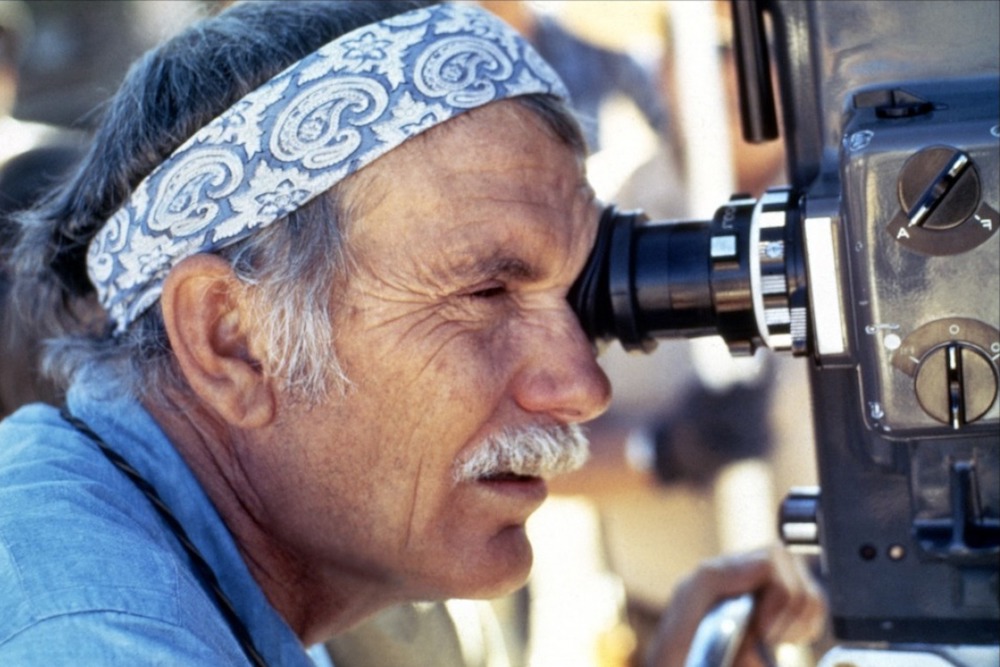The father of violent movies: Who is Sam Peckinpah?
One of the leading directors of the 1970s with his innovative style of depicting violence: David Samuel Peckinpah. In fact, he is such a "faulty" name that his name is always written at the top among the famous bad boys of American cinema. But he is also the most permanent member of the class of innovators.

Aka Bloody Sam, who breathed new life into the spirit of Hollywood in the late '60s. He is almost a milestone with his films and what he has done. The mad genius who made the entry into cinema (mainstream) as a form of expression of "violence" with his films that laid the foundations of action cinema.
Yes, it depends on the centrality of the cinema, from within the system (studio), to within the borders. He is a man who, despite everything, violated the boundaries and searched for a space unlimited enough to succeed in making "independent" films.
Bloody Sam, one of the two new knights (Leone-Peckinpah) who adopt a more aesthetic narrative, as opposed to the two Johns (Ford-Wayne) of the classic Western, deals with the issues with a very modern approach, without focusing on the image of "wild Indians", just like Leone.
David Samuel Peckinpah (February 21, 1925 – December 28, 1984) was an American film director and screenwriter. His 1969 Western epic The Wild Bunch received an Academy Award nomination and was ranked No. 80 on the American Film Institute's top 100 list. His films employed a visually innovative and explicit depiction of action and violence as well as a revisionist approach to the Western genre.
With its anti-heroes trying to protect their places of power, it depicts a cruel, merciless, harsh, and bloody life where bloodshed has become commonplace. Of course, in the shadow of the guns. Peckinpah, who focuses on the world of men as a form of representation, moves towards the origins of violence, and ultimately ties another knot to that huge enigma called man, skillfully covers his films with strong subtexts about power and domination.
His role in the upbringing of Mustafa Akkad, who broke new ground with the movie The Message, is undeniable. After completing his education at UCLA, Akkad, who received his master's degree at USC (University of Southern California), met Peckinpah, who would change his life completely, at this school and formed a good friendship with the grumpy director. For example, Peckinpah's Arabic-speaking assistant in his project on the Algerian revolution, which was canceled after Algeria gained independence, was Akkad. Peckinpah was the first master of Akkad to broaden his horizons while he was still a student. His support for this bright Muslim student will continue until Akkad flies with his own wings in the industry. Peckinpah and Akkad are among the strangest duos in the history of world cinema whose paths crossed as master and student. For this reason, Peckinpah indirectly contributed to the filming of The Message.
He was only 18 years old when he joined the navy as a soldier, where he would undergo very heavy training. He was introduced to physical hardship and the oppressive atmosphere at an early age. Peckinpah, who served in China at the end of World War II and experienced the desperation of Japanese soldiers, the meaning of domination, and the destructiveness of war, first studied theater in America, where he returned after the war, and then, with the support of his family, took his first step into cinema with the famous director Don Siegel. and began to dream of the stories he would put on the big screen.
His film career is full of turmoil, ups and downs, and very controversial. He is recorded as the director of strange, colorful, harsh, brutal, and highly talked about films that failed to meet expectations at the box office.
Peckinpah's cinema is based on harsh realism. What they say belongs not to misogyny but to the world of wounded men. Stylized depictions of violence do not involve blind pornographic pain, but violence on a more factual level. He is the first poet of violence and the original owner of an epic spectrum that extends from Tarantino to Robert Rodriguez, Guy Ritchie, John Woo, and the Coen Brothers. Even if he is not the first director to approach this phenomenon in cinema with poetic originality, for example, to change the aesthetic meaning of the image with slow motion techniques, he is the first director that comes to mind with the frequency of his use. In this context, he is a narrator who influences the next generation. First Scorsese and Coppola, and then the rise of Spielberg and Lucas in the 1980s, made Peckinpah forgotten. Nevertheless, as one of the unconventional directors of the golden period of post-war American cinema, Peckinpah is a pioneer among the stars of his genre, even though his name is not mentioned by mainstream directors.
Peckinpah, who died in December 1984, was working on the adaptation of Stephan King's Gunslinger series to the cinema before his death.
